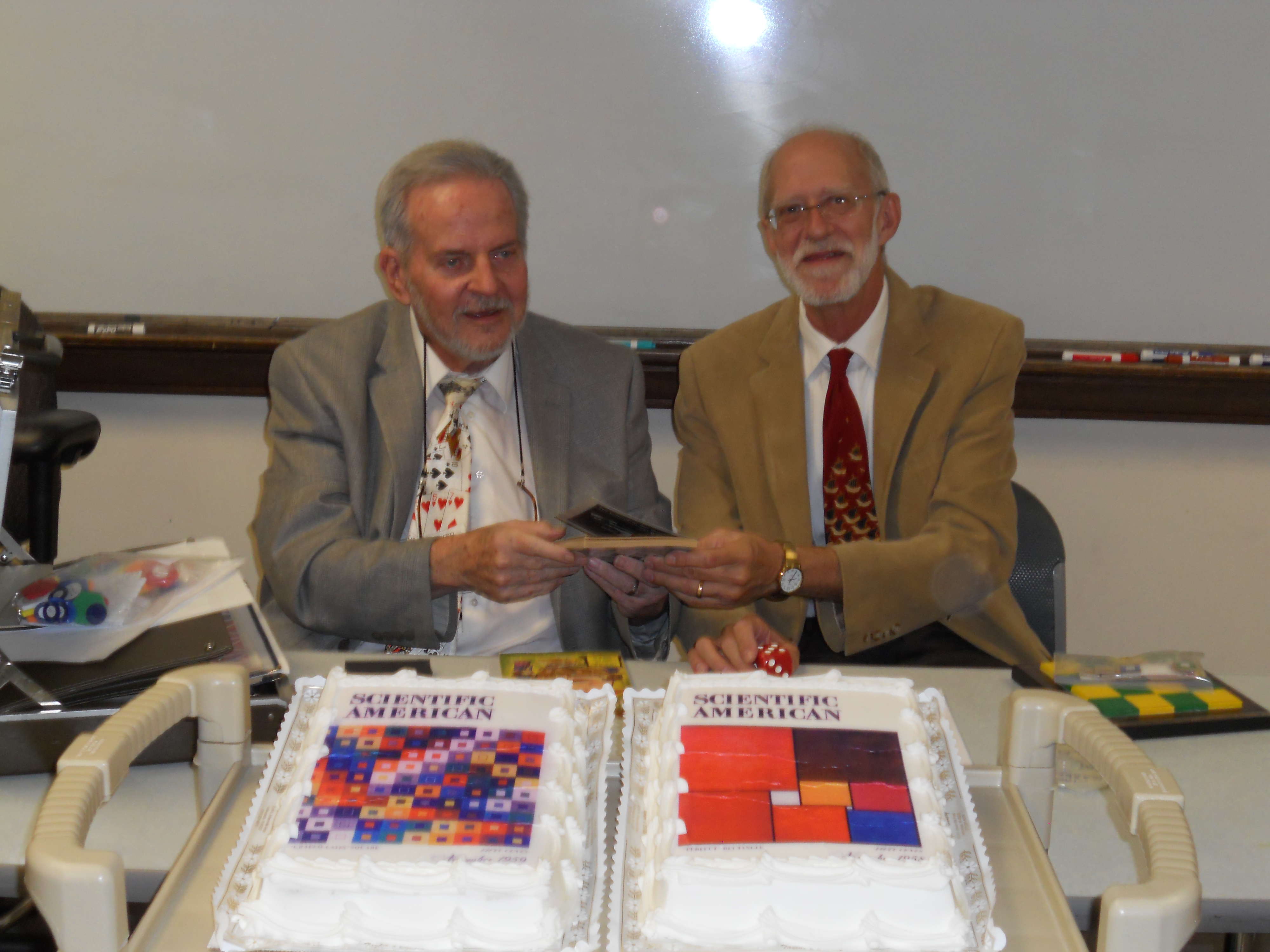 Left to Right: Dr. Jerry Farrell and Dr. Stephen Bloom
Left to Right: Dr. Jerry Farrell and Dr. Stephen Bloom
Dr. Stephen Bloom: Elementary Mathematics Education
Dr. Bloom has been a teacher (of some sort) for 44 years, and he’s a senior member of the COE. Dr. Bloom’s passion and continuously growing heart for the field of education prove that you never grow out of your dreams.
He began his academic journey at the University of Northern Iowa, which was known for two things at the time: business and teacher training. Dr. Bloom first enrolled in the business school, but decided quickly that he didn’t enjoy it and switched to the only other field available, which happened to be education. This decision wasn’t made without a little thought, though. Dr. Bloom had worked with boy scouts and children his whole life, and he had always enjoyed interacting with young kids. Soon, Dr. Bloom began teaching at an elementary school, where he remained for 12 years and taught grades 2-6. The wide age range of students with whom he interacted never bothered Dr. Bloom; as always, he simply enjoyed working with children.
After 12 years of teaching children, Dr. Bloom began to wonder how he could impact more kids at a time—because that had always been his main focus. Why would anyone want to become a teacher if they didn’t want to impact kids in a major way? So Dr. Bloom went back to school. He got his PhD from University of Iowa and began training teachers to impact students. He then taught for nine years at the National Louis University in Chicago.
In 1996 and Dr. Bloom came to Indianapolis to teach elementary mathematics education at Butler (a school previously unknown to him). Since then, Dr. Bloom said he has only met wonderful people and students here.
When Dr. Bloom first came to Butler, he worked with students in their junior year and beyond—he led them through their student teaching experiences and the struggles that come with teaching math to grade school students. He loves that he can teach college students fractions one day, then watch those same students pass off that knowledge to students in classrooms almost immediately. The field work component clearly thrills Dr. Bloom beyond belief—the amazing ability of crafting experiences that are strongly connected to real students is inspiring.
And it’s this content area of math that Dr. Bloom truly loves sharing with others. Often, he says, math is a “four-letter word” to kids. It’s big and it’s scary in grade school. By the time students have reached fourth and fifth grade, the ones who have struggled the most have already turned off their brains to math. That’s why Dr. Bloom’s unique passion for the combination of math and elementary education is so important. He affectionally called himself Don Quixote, just “tilting at windmills” in the attempt to save kids from the hatred of math that would prevent them from succeeding later on in life.
Dr. Bloom says the most important thing teachers can do for their math students—especially in the early grades—is to help the students walk out of the classroom knowing how to “work around the potholes,” that is, knowing their weaknesses, but knowing that (with the right direction) they can move past them.
But Dr. Bloom doesn’t stick around just because of his passion for math. He loves that the students at Butler can run after the same dream he has always had: impacting students.
“No one at this college thinks [our work] isn’t about the kids… peel the layers back and bring what we know [content, experience, etc.] and we can all agree that it’s all about the kids.”
